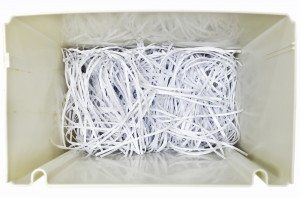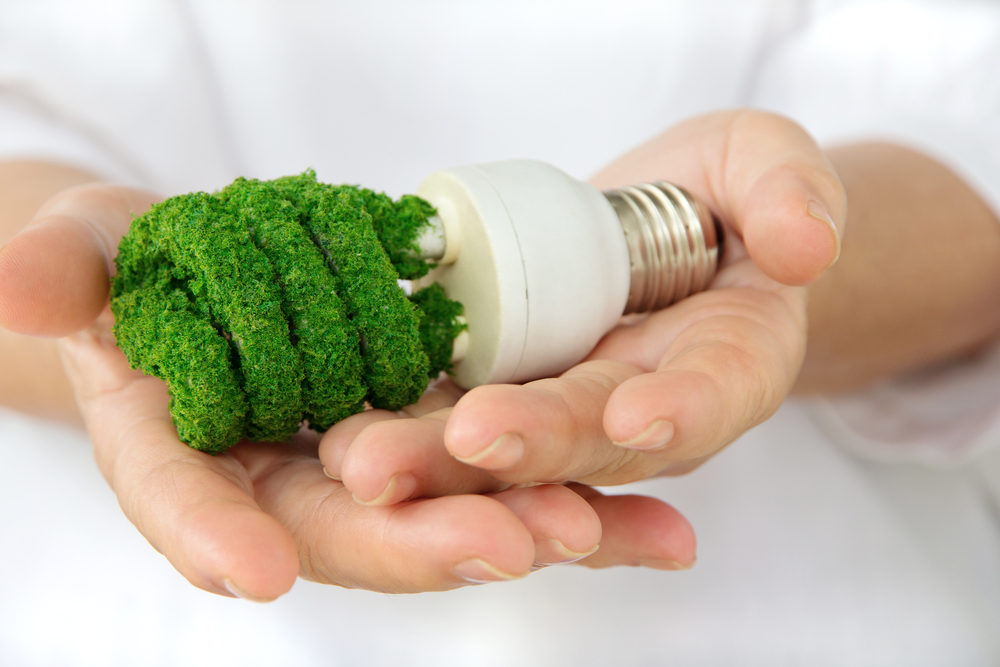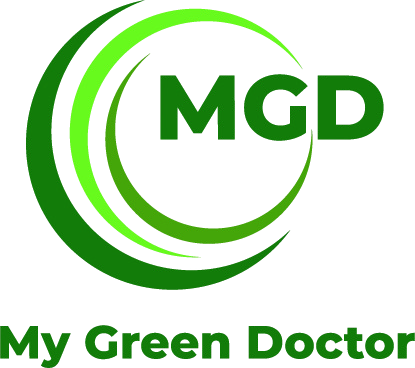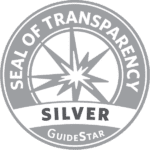Introduction
We produce an amazing amount of solid waste in healthcare clinics, offices, and outpatient centers: paper, plastics, newspapers, corrugated cardboard boxes, wrappers, bottles, cans, patient gowns, towels, gloves, pharmaceuticals, needles, glass vials, and even food. Much of this is unavoidable because we work with patients who provide us with some pretty dirty stuff that must be thrown out. But a lot of what we discard might be handled differently.
We can reduce our waste by buying fewer products, by buying in bulk to eliminate packaging, and by selecting products that are made from recycled materials or that can be recycled themselves.
We can reuse items so there will be less to buy. We can recycle. Thinking about solid waste means thinking about everything that comes into the offices, how we use it, and how it leaves the office. By doing this, healthcare offices can save money, avoid a lot of waste, and save a few trees. Plus, when these ideas are taken home, there may be opportunities to save money there as well.
We can become aware of the environmental impacts of the products that we buy. Are the products made safely — safely for the environment and for the workers making them? Are they packaged and transported wisely? Can they be recycled or disposed of safely? If the answers to some of these questions is “no”, then are there alternative products that our office can use?
Your patients and clients will be pleased to learn of your concern for their safety and for the community’s well-being.
If you have not yet done so, please register now with My Green Doctor before you proceed further.
Solid Waste and Recycling Action Steps
It is easy and rewarding to begin a recycling program in the doctor office. We will show you how. We recommend also that your Green Doctor Office Team think seriously about all solid waste in the office. Consider making an informal inventory of what you use and throw away. Start by taking a Green Team “field trip” to the office trash cans. Ask yourselves whether the products you discard are needed at all, or could they have been reused or recycled? Most offices can cut in half the amount of materials that are thrown out!
We provide dozens of Action Steps and Education Steps that have worked for other doctor offices and businesses, listed in the Quick Start Now and Advanced Route Action Steps below.
Quick Start, Now! Action Steps for Solid Waste and Recycling
Agree to a goal of 100% recycling for your office waste. Learn what materials can be recycled by commercial buildings in your town. Certainly you can recycle newspapers, plastic bottles, glass bottles and aluminum. What about food waste or Styrofoam?
Issues to discuss:
- Can we agree to do this?
- Will the trash collector accept these or will a staff member be taking home our recycled materials?
- What recycling bins are needed for each office rooms & for the waiting room?
- Who will monitor the bins weekly, and record how many bins or pounds of materials we recycle?
- Who will with talk with the cleaning personnel to be sure that our recyclable materials are not discarded as common trash?
Adopt a policy to buy only recycled-content and low toxicity paper products. Paper comes with different extent of recycled content; your office supply vendor will explain the options. Set a goal of at least 30% recycled content. Recycled paper costs a bit more but your energy savings will more than pay for it. Consider using only recycled paper and only vegetable-dye inks for outside printing orders. Consider every paper product in the office: note pads, stationery, patient handouts, charts, photocopy and printer paper, brochures, business cards, etc.
Issues to discuss:
- Can we agree to do this?
- What will be the schedule for transitioning to recycled paper products?
Adopt a policy to recycle or refill your printer ink or toner cartridges. Your office supply store or vendor can explain how to accomplish this. You may need a recycling bin to store the empty cartridges.
Issues to discuss:
- Can we agree to do this?
- Who will lead this Action Step?
Agree as an office not to use Styrofoam or similar disposable cups and plates. Styrofoam is made with environmentally-unfriendly manufacturing methods and is very wasteful. Speak with your product vendors about cups and plates made from alternatives such as corn or paper. Buy sets of inexpensive dishes for the office; encourage office members to bring their own cups and to reuse them. Inform the salespeople who bring food & beverages to your office that you no longer accept Styrofoam.
Issues to discuss:
- Can we agree to do this?
- Who will lead this Action Step?
Eliminating bottled water and the water cooler saves money and electricity. Of course, you can only do this if your town’s public water supply is safe to drink. Bottled water is expensive, wasteful, and is less rigorously tested for safety than many public water supplies.
Issues to discuss:
- Can we agree to do this?
- Who will lead this Action Step?
- Can we print for the waiting room the My Green Doctor brochure, “Choose Tap Water”? https://mygreendoctor.es/resources/waiting-room-brochures/
Keep Going! More Action Steps for Solid Waste & Recycling
Go on-line or call your city government to learn what can be recycled. For most communities, this is at least newspapers, aluminum cans, and plastic bottles. If your building does not have commercial recycling, a Green Team member can volunteer to take the recycling bins home each week to add to their home recycling pickup.
Many cities and counties now welcome recycling of magazines, cardboard, telephone books, glass and plastic bottles, computers, carpets, and wood furniture. If your office of going to be remodeled, much of the discarded construction materials can be recycled, including wood and cement.
Recycling Tips:
1. Keep track of how many bags of materials or how many pounds of materials you recycle each month. You might use the Green Team Notes form or a Green Team spreadsheet to record your progress.
2. Plastics: Most communities can only recycle Type 1 and Type 2 plastics. The plastic type is stamped within a triangle on each plastic container. Learn what can be recycled in your community and teach this information to everyone in the office.
3. Ask a Green Team volunteer to look after the recycling bins to see that they are being used correctly.
3. Cleaning personnel: Speak with you cleaning personnel to be sure that your recyclable materials are not discarded as trash.
Purchase recycling bins for the office and waiting room. You can start with newspaper, plastic bottles, glass bottles and aluminum cans. Find a Green Team volunteer to monitor the bins weekly, and someone to take them home for the home recycling pickup if your office does not offer commercial pickup. Keep a record of how many bins or pounds of materials you recycle monthly. Speak to the cleaning personnel to be sure that your recyclable materials are not discarded as trash.
Recycle your shredded paper. Your building manager or trash disposal company may be able to help. In a large office building, several office may be able to pool their shredded paper to receive free recycling pickup.
Recycle or reuse cardboard boxes and other containers. Speak with you building manager or trash disposal company for help.
Display “We Recycle” signs in the office and waiting room, and put “Recycle, please” stickers on patient chart covers.
Prepare a handout for your staff and patients about recycling at home.
Speak with the building manager and other tenants about a building-wide recycling program.
Assign a Green Team group to review your paper supplies, including your patient charts, forms, copy paper, note pads and stationery. Decide to eliminate unnecessary forms, create double-sided forms, or combine forms where possible. Are you using paper with recycled content?
Adopt an electronic medical record or electronic prescription-writing system. This will save you lots of paper, and there will be substantial financial benefits in the future from making these choices, including higher reimbursement and other financial incentives from insurance payers such as Medicare in the United States. Speak with your professional society, another doctor office, or a hospital for advice. The Green Doctor Office Program is willing to point you in the right direction– see the “Contact Us” tab.
You can avoid printed forms by recording information directly into your computer or scanning documents. An example might be billing information, patient identification card, and patient signatures.
Purchase and install electronic signature software, saving you the expense of paper and of filing documents.
Adopt an office policy to use email, text messages, electronic bulletin boards, and telephone calls instead of paper messages.
Adopt an office purchasing policy to buy only recycled-content and low toxicity paper products. Paper comes with different extent of recycled content. Set a goal of at least 30% recycled content. Choose to use only recycled paper and only vegetable-dye inks for brochures and other outside printing orders. Consider every paper product in the office: note pads, stationery, patient handouts, charts, photocopy and printer paper, brochures, business cards, etc.
Adopt a policy to use only recycled paper products in your restrooms, kitchens and examination rooms. These cost little more than non-recycled paper, and they make a statement to your patients about your concern for the natural environment and their health. Put up a small sign saying, We buy only paper products that are made with recycled content. Reduce your solid waste even more by replacing paper towel dispensers with electric hand dryers.
Installing electric hand dryers will save you money by avoiding the costs of paper manufacture, transportation, storage, installation, and disposal. Ask your electrician or building manager to quote the cost to purchase and install these. Remember that Reduce is the most cost-effective of the 3 Rs of solid waste management Reduce, Reuse, & Recycle.
Adopt an office policy to seek certified “green” office products when possible. Ask your office supply company for their list of “green” products. Companies such as Office Depot have done the research for you to make this easier.
Purchasing tip: It can be difficult to find good prices for recycled-content paper products. Begin by asking your local office supply distributor to price-compare for you. There are national vendors, including companies called “Group Purchase Organizations” or GPO’s, that specialize in this. Amerinet is one of these. See also http:/www.thegreenoffice.com.
An example of a “Group Purchasing Organization” that offers “green” products is Amerinet (The FMA has not endorsed Amerinet; we provide this information as an example of a GPO):
About Amerinet Inc.
As a leading national group purchasing organization, Amerinet strategically partners with healthcare providers to reduce costs and improve the delivery of quality care.
Through Amerinet’s Total Spend Management solutions and operational performance improvement programs, tools and services, we assist members in their efforts to reduce costs, improve efficiencies and create new revenue streams.
Supported by a team of clinical, data and supply chain experts, Amerinet offers a comprehensive portfolio of product and service contracts to address members’ specific needs. Amerinet serves more than 26,000 acute and non-acute healthcare providers nationwide. To learn more, visit www.amerinet-gpo.com.
Adopt a policy to recycle or reuse patient chart covers.
Adopt a policy to for copiers, fax machines and printers: Here is a policy you can use:
Green Team Policy for use of copiers, fax machines and printers:
1. Avoid non-essential copying, faxing & printing. You might put reminder messages on these machines.
2. Use double-sided copying & printing. Teach everyone in the office how to do this.
3. Make document margins smaller and choose small font sizes to save paper.
4. Reuse copy paper when the first side does not have any confidential patient data. Put a bin near the copier machine for paper to be reused, or for paper recycling.
5. Use “draft” or “quick print” modes for printing, to save money and chemicals. Teach everyone in the office how to do this. Ask your computer experts to set all computers and printers to use draft mode routinely.
6. Turn off machines when not in use, such as at night.
Source: www.mygreendoctor.org from the Florida Medical Association
Adopt a policy to recycle or refill ink cartridges. Your office supply store or vendor can make it easy to recycle ink cartridges. See Office Depot, for example.
Prepare a handout for your staff and patients on the efficient use of office machines at home.
Take Green Team “field trip” to your waiting room. Your patients and their families spent a lot of time there, and can learn a lot about you. Place recycling bins in your waiting room for those newspapers, magazines, plastics and cans. Put up a sign that says, “We Recycle!”
Your waiting room will be where you can conduct the “Education” part of your Improvement Plan. You might put up posters, or provide your patients with brochures, or create weekly one-page information sheets on Solid Waste & Recycling, or other topics. If available, show a video on an energy or environmental topic relevant to the health of your patients. Ask your patients for their ideas and suggestions.
Ask a Green Team member to be responsible for the waiting room. This person will inspect the waiting room daily, take responsibility for the recycling bins, and help find new ways to share Green Team information with your patients and their families.
Adopt a policy to use washable, reusable cloth materials where possible.
Adopt a policy to purchase staff uniforms made from recycled materials.
Buy sets of reusable plates, utensils, and cups for the office.
Agree as an office not to use Styrofoam or similar disposable cups and plates. Styrofoam is made with environmentally-unfriendly manufacturing methods and is very wasteful. Speak with your product vendors about cups and plates made from alternatives, such as corn. Buy sets of dishes for the office; encourage office members to bring their own cups and to reuse them.
Reuse the trays, packaging and bags from foods that are delivered to the office.
Begin composting the vegetable waste in the lunchroom and meeting rooms.
Prepare a handout for our families and our patients about wrappers, packaging, recycling and reusing.
Use city water instead of bottled water. Purchase reusable cups and glasses for the offices, as well as water pitchers for the waiting room, kitchen and meeting rooms. For convenience, you might install a water fountain that does not use electricity to operate. Encourage the office members to use reusable water bottles, preferably made of one of the newer, low-toxicity plastics or glass. There is an example of these bottles described as an Education Step just below in this Workbook.
Download and print the bottled water brochure, “The Truth About Your Water: Choose Tap Water First, What You Can Do.” Give it to your office staff and place copies in the waiting room.
Water Safety: Tap vs Bottle: Safety regulations are stricter for municipal water than for bottled water, and so your public water supply is actually safer in many cases than bottled water. There are also concerns about the health impacts of chemicals such as bisphenol-A BPA and BPAF that leach into the water from the plastic containers. Know the quality of your local water supplies– by law, safety data must be provided to the public at least annually.
Bottled Water Tips: Avoiding 8 glasses of bottled water daily can save $1400 each year.
Drink tap water, ice tea, & coffee instead of sodas and bottled water. Water is healthier. Support your local water supply and water utility.
Water Safety: Tap vs Bottle: Safety regulations are stricter for municipal water than for bottled water, and so your public water supply is actually safer in many cases than bottled water. There are also concerns about the health impacts of chemicals such as bisphenol-A BPA and BPAF that leach into the water from the plastic containers. Know the quality of your local water supplies– by law, safety data must be provided to the public at least annually.
Bottled Water Tips: Avoiding 8 glasses of bottled water daily can save $1400 each year.
Encourage the use of reusable bottles for drinking water. There can be fun and attractive. Most of these now made of the safe new plastics. Consider buying these for the office staff, perhaps with your office logo on the bottles, and write on them something like, “For the health of our community, we support our local water.” One attractive water bottle product that we like is the “Power Bottle”, which includes its own filter. This product can be examined online: www.powerbottleusa.com. (Note: this is not an endorsement of this product by the FMA).
Tips for Success
Your Improvement Plan consists of the Action Steps that you choose to adopt for the office.
For each action step:
-
-
- Record your situation before starting your improvements. For example, estimate how many bags or pounds, of solid waste produced weekly. Record this on a Green Team Notes form or on a Green Team Spreadsheet.
- Establish specific, measurable, date-certain targets, for what you want to accomplish such as, ìWe will recycle 100% of plastic and aluminum cans, or “We will have no styrofoam in the office by January 1.”
- Agree on a leader for each Action Step.
-
-
-
- Agree on the responsibilities of each person in the office.
- If needed, obtain agreement or approval from the office manager or chief executive.
- Communicate with your office colleagues. Listen for ideas and try to elicit helpful criticisms.
- Educate your patients, families & community. Which ideas could be shared with your own families or with your patients? Part of the Green Teamís Improvement Plan must include an education plan. Your waiting room can become a site for education.
- Reassess the Plan after a reasonable period.
-
Recycling Success Story
Background Information
-
-
- The typical US city of 1 million people discards over 4 million pounds of solid waste daily-thatís 1.5 billion pounds per year.
- About 40% of landfill waste is from residential sources; about 60% is from businesses.
- Americans generate up to 70% of their waste at work.
- One half of the contents of a typical dumpster is recyclable.
- On average, one office worker can recycle enough paper every year to save at least one tree.
- 1.5 million barrels of crude oil is used every year making the plastic bottles for bottled water consumed in the US.
- Producing ìrecycledî paper uses 64% less energy, uses 58% less water, and generates 74% less air pollution than making paper from trees.
-



